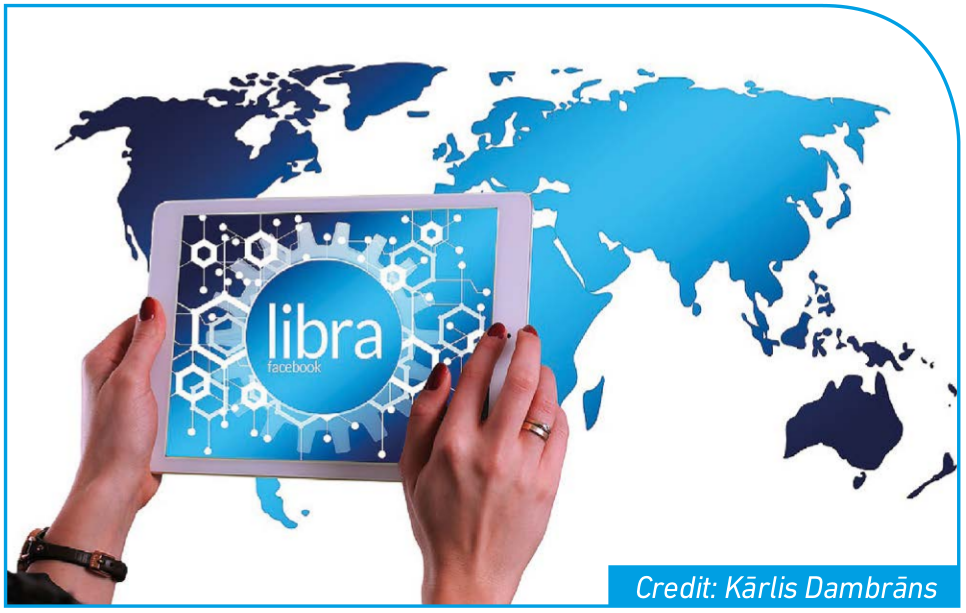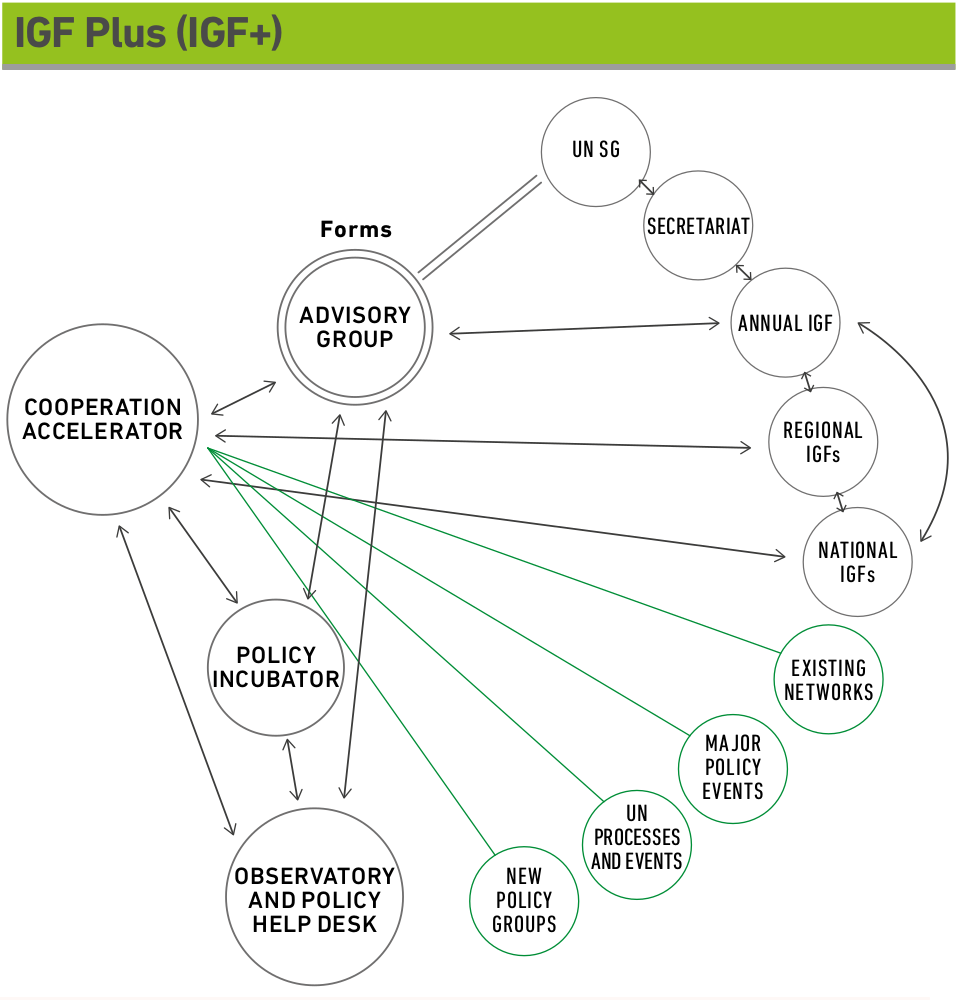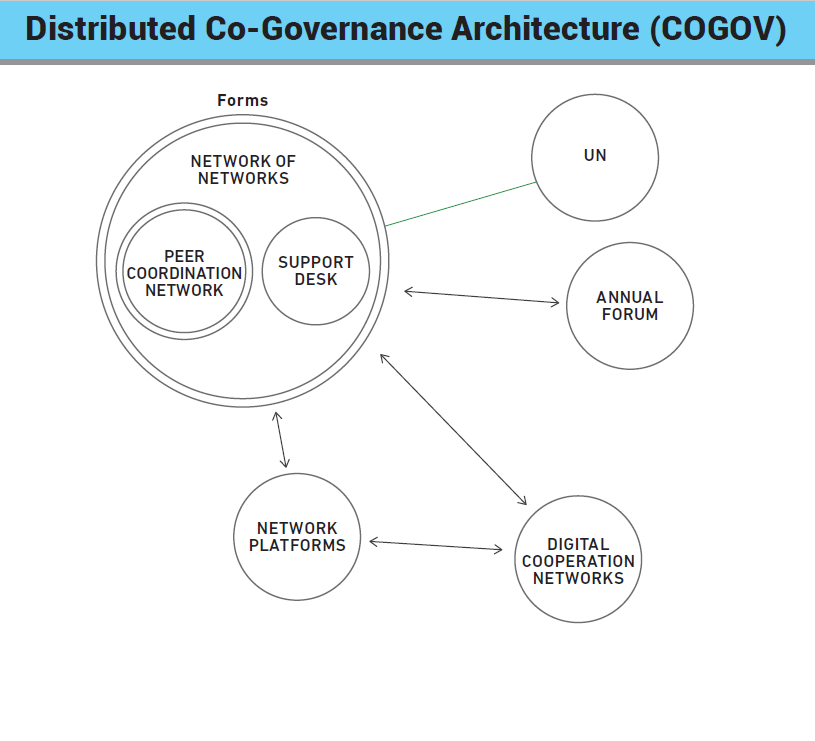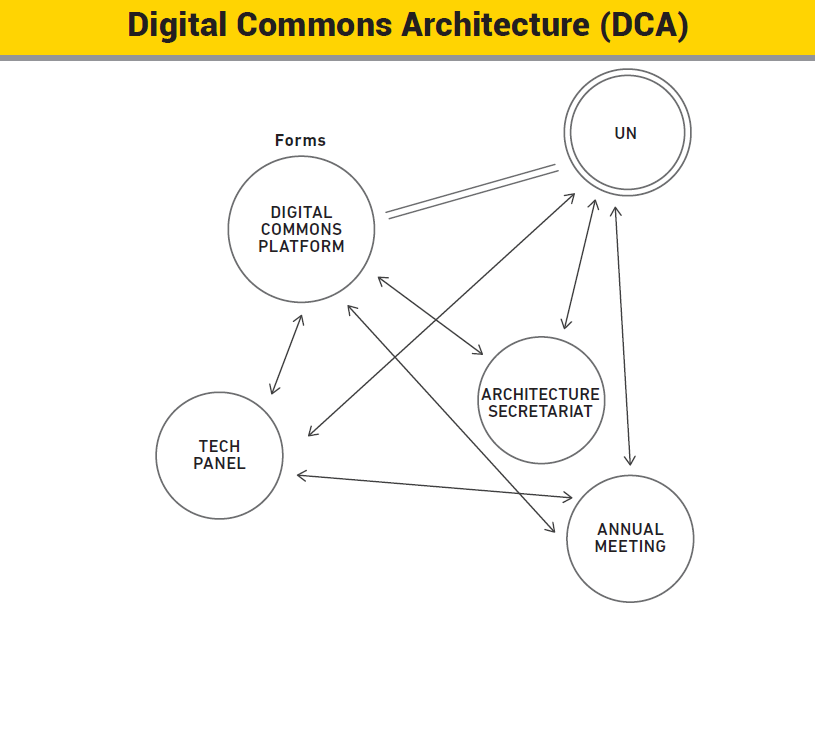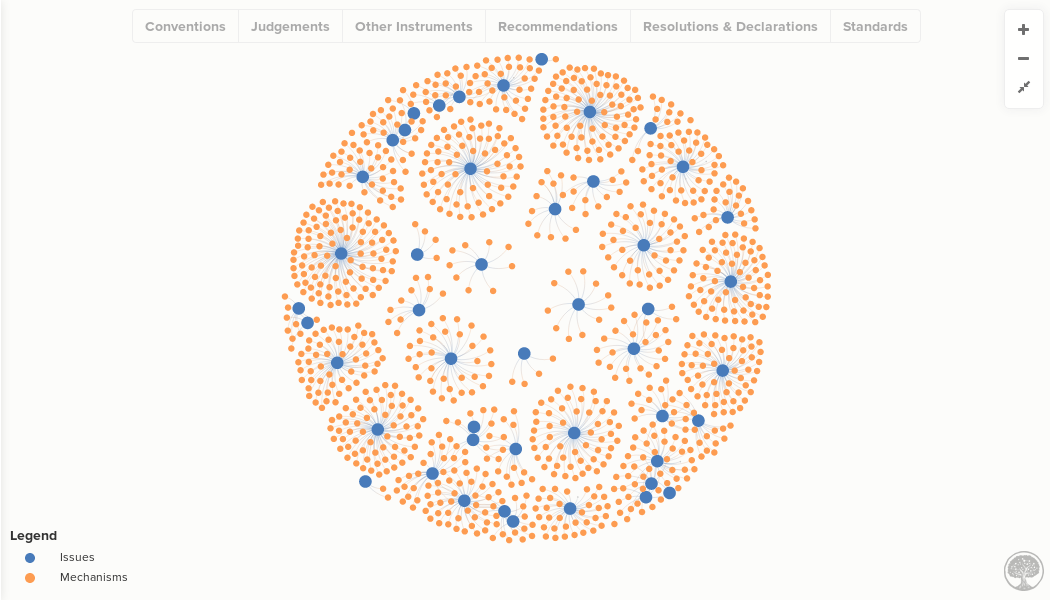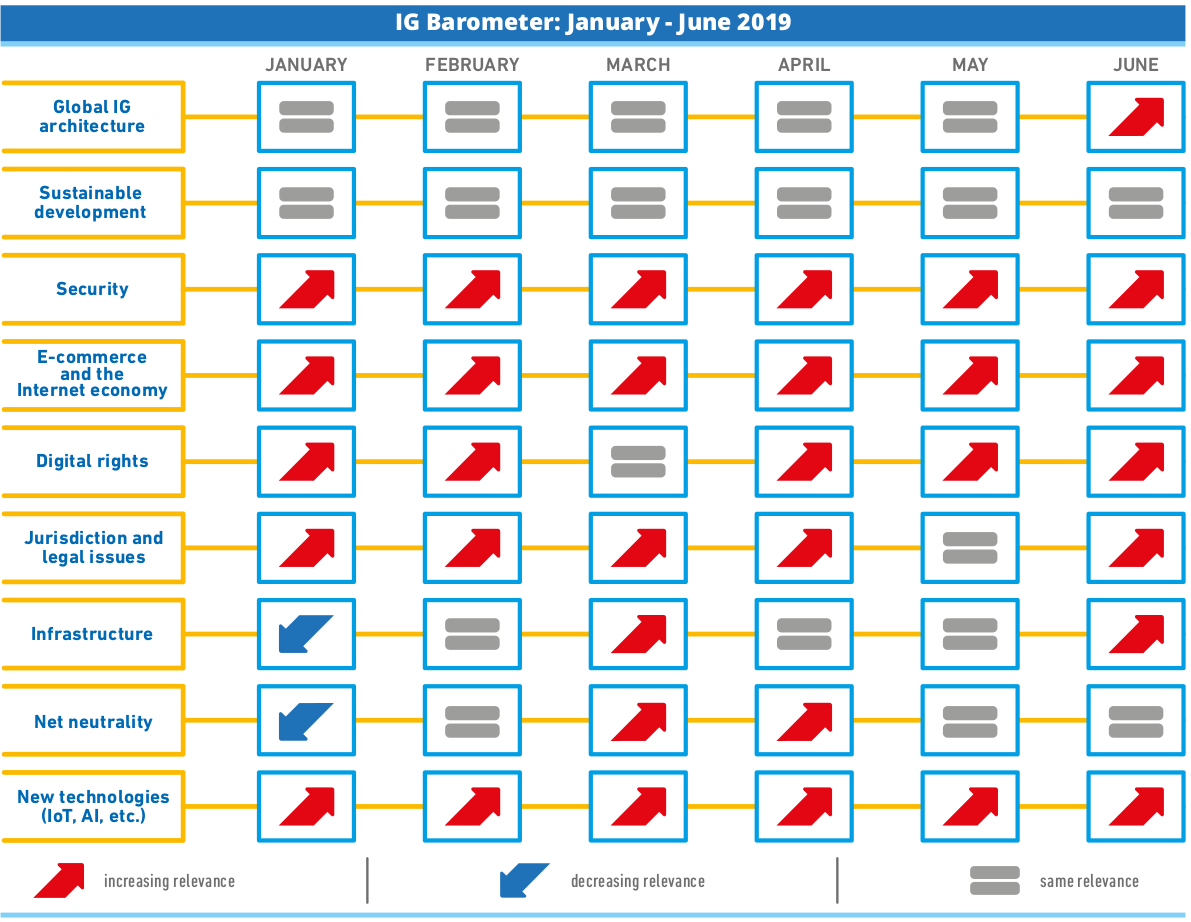Digital Watch newsletter – Issue 41 – June 2019
Trends
Every month, we analyse hundreds of developments to identify the trends in digital policy, and the unfolding issues that drive it forward. These are the key trends that sum up the month of June.
1. Facebook's Libra: a game change for the crypto and financial industries?
In 2018, Facebook revealed its intention to look into cryptocurrencies and ‘how to best use them in our services’, and set up a group of experts to ‘explore how to best leverage blockchain across Facebook’. About a year later, in June 2019, the company announced the official launch of its cryptocurrency Libra, by releasing the technical documentation, a White Paper, and a testnet for developers.
Described as a global currency and financial infrastructure dedicated to ‘creating a more inclusive financial system’, the new currency is built on the Libra Blockchain and is backed by a reserve of real assets (money coming from investors and Libra users).
The currency is governed by the Libra Association, a non-profit organisation based in Geneva, Switzerland, whose founding members include both private companies (such as PayPal, Mastercard, Visa, Stripe, Uber, Vodafone, Spotify, eBay, and Lyft) and non-profit organisations (such as Kiva, Mercy Corps, and Women’s World Banking). Facebook is part of the Libra Association through its newly formed subsidiary Calibra, which will develop the electronic wallets for users to receive and spend Libra.
Will Libra be a game changer for the crypto and blockchain industry? We can look at this from two perspectives. On one side, Libra will bring the notion of easily transported, low-fee transactions, and programmable money to many people who have never used this kind of service. This indeed might be a game changer which could lead to the wider adoption of digitised currencies. Nevertheless, Libra might become a strong competitor and stifle the development of many blockchain and FinTech-based services which offer similar solutions.
On the other side, Libra is not really a cryptocurrency as we know them. Unlike prominent ones such as Bitcoin or Ether, Libra is not decentralised; it is governed by a central body – the Libra Association. It is not open; while everyone can use it, not everyone can confirm transactions or look at the blockchain data. It is not censorship-resistant; users’ funds can be seized.
It is often claimed that the main advantage of traditional cryptocurrencies lies in their independence from money issued by central banks. With Libra, Facebook may be changing the narrative around cryptocurrencies, promoting them as tools whose main advantages are low fees and fast payments.
Time will tell what the impact of Libra will be. Meanwhile, there are policy and regulatory issues surrounding this currency.
2. Online rental businesses come under fire
The sharing economy has created new business models that compete with more traditional services in areas such as transportation and accommodation. These new models have received intense criticism for some time. Ride-hailing companies such as Uber, for instance, have been criticised for the conditions under which their drivers work; they are not recognised as employees, hence, have no rights or adequate support from the company. Currently, the explosive growth of online rental businesses is increasingly coming under scrutiny by public authorities.
In Europe, ten major cities (Amsterdam, Barcelona, Berlin, Bordeaux, Brussels, Krakow, Munich, Paris, Valencia, and Viena) have demanded help from the EU to address the problems raised by Airbnb and other holiday rental websites.
Public authorities argue that the explosive growth of these platforms is hampering access to housing by locals and changing the face of neighbourhoods. When homes can be lucratively rented to tourists, they disappear from the housing market, causing a shortage of homes in these cities and pushing the prices up. Representatives of the ten European cities requested that this topic be included on the agenda of European Commissioners.
The letter comes at a timely moment. In April 2019, the Advocate General of the Court of Justice of the European Union (CJEU) issued a non-binding opinion considering that since Airbnb is providing an information society service, it should not be considered a traditional real estate agent. If this opinion is confirmed by the CJEU, it would allow Airbnb and similar platforms to operate freely across the EU.
Opposition to Airbnb’s model and attempts to regulate this type of business can be seen in other cities around the world as well, such as New York, London, Dublin, Reykjavik, Singapore, Tokyo, and even San Francisco, the birthplace of Airbnb. Measures taken include limiting the number of days owners can rent their places via online platforms, demanding Airbnb and similar platforms provide information about hosts (e.g. names and addresses) to local authorities, and requiring hosts to register with the authorities.
At the same time, home sharing clubs are being created in many of these cities. They are advocacy groups made up of Airbnb hosts, dedicated to conducting informal lobbying and ‘advocating for fair home sharing laws’.
As the sharing economy continues its expansion, we will likely see more and more cities and countries confronted with the need to regulate service providers such as Airbnb and Uber. The trend is already here; it remains to be seen how stringent or relaxed such new rules will be.
3. Renewed push for taxing digital giants
In June, taxation in the digital economy came into focus again. At their meeting in Fukuoka, Japan, G20 finance ministers agreed to step up their efforts towards ‘a consensus-based solution’ to the tax challenges arising from digitalisation. A set of G20 common rules for taxing digital companies is expected to be compiled by 2020.
The ministers also reiterated their support for the so-called two-pillar approach towards taxation developed by the Organisation for Economic Co-operation and Development (OECD)/G20 Inclusive Framework on Base Erosion and Profit Shifting. In this approach, companies would be subject to taxation in the countries where their products or services are sold (even if they do not have a physical presence there). If companies will still be able to register their profits in low-tax jurisdictions, countries could apply a global minimum tax rate.
The G20’s plans to come up with common rules by 2020 might seem a bit ambitious, given that similar attempts have either not seen enough progress or have been dropped altogether. The EU, for example, has recently scrapped its plans for an EU-wide digital tax, which was opposed by Ireland and Nordic countries. Those opposing the EU-wide tax have indicated that, instead of developing its own rules, the block should wait for the OECD to complete its work on global tax rules. However, the OECD approach is considered by some as being too slow, and this has prompted several countries to develop their own rules for taxing tech giants. Examples include Austria, France, and Spain.
What we see is an ongoing push for clear rules regarding the taxation of digital companies. There are now three tracks in this direction: the OECD process aiming at a global agreement for tax rules, national tax rules emerging in different countries, and the recent G20 agreement to develop a common tax policy by 2020. Despite these separate efforts, one thing is certain: Taxation of the digital economy is, and will likely remain, very high on governments' agendas.
Digital policy developments
With so many developments taking place every week, the policy environment is chock-full of new initiatives, evolving regulatory frameworks, new court cases and judgments, and a rich geo-political environment.
Through the Digital Watch observatory, we decode, contextualise, and analyse these issues, and present them in digestible formats. The monthly barometer tracks and compares them to reveal new focal trends and to determine the presence of new issues in comparison to the previous month. The following is a summarised version; read more about each one by following the blue icons, or by visiting the Updates section on the observatory.
Global IG architecture
increasing relevance
The UN Secretary-General’s High-level Panel on Digital Cooperation presented its report with a set of recommendations and an invitation for stakeholders to commit to a Declaration of Digital Interdependence.
Sustainable development
same relevance
The EU’s Digital Economy and Society Index reveals that all EU countries improved their digital competitiveness, but some still lag behind in digitalisation. The Women in Digital Scoreboard, which assesses the digital inclusion of women, finds that the gender gap is still present in the EU.
The Global Survey on Internet Security and Trust finds that more trust in the Internet is needed to support the digital economy.
Security
increasing relevance
The UN open-ended working group, established to address developments in the field of information and telecommunications in the context of international security, started its work.
Iran argues it has exposed and dismantled a US cyberespionage network. Security firms report an increase in Iranian cyber-attacks, while the US administration is said to have launched cyber-attacks against Iranian computer systems that control missile launches.
The USA is reportedly escalating cyber-operations against Russia’s electrical grid.
China released a draft regulation outlining measures for network operators to protect children’s personal information online.
Two cases in the USA are alleging that Amazon's smart assistant Echo is permanently recording children's interactions without consent, while the US Federal Trade Commission is investigating YouTube over unlawful collection of children's data.
E-commerce and Internet economy
increasing relevance
Ten European cities asked the European Commission for help in addressing the expansion of short-term rental platforms such as Airbnb.
G20 finance ministers committed to develop a consensus-based tax policy by 2020. G20 trade and digital economy ministers outline plans for a human-centred digital society.
Facebook announced the official launch of its digital currency Libra, expected to be operational in 2020. Brazil plans to establish a commission to develop cryptocurrency regulations. Australia issued guidelines for Initial Coin Offerings and crypto-assets.
Digital rights
increasing relevance
Google faces new privacy complaints in nine European countries.
Italy’s data protection authority (DPA) fined Facebook €1 million over privacy breaches in the Cambridge Analytica case.The Swedish DPA launched an investigation into Spotify’s alleged violations of the EU General Data Protection Regulation (GDPR).
The USA is requiring visa applicants to provide social media usernames and e-mail addresses for the previous five years.
Jurisdiction and legal issues
increasing relevance
The CJEU Advocate General opined that Facebook can be ordered to identify comments identical to an illegal defamatory comment.
The CJEU ruled that paid VoIP services represent electronic communications services and must comply with applicable EU regulations. Web-based e-mail services, however, are not subject to telecom rules.
Sri Lanka announced plans to introduce new penalties for spreading fake news and hate speech online.
YouTube and Facebook introduced new policies to fight hate speech.
The UN Secretary-General launched the UN Strategy and Plan of Action on Hate Speech.
Infrastructure
increasing relevance
Huawei concluded 5G agreements with the African Union and Russia. China issued 5G licences for commercial use to major telecom companies.
The first European supercomputers will be hosted in eight sites across the EU.
Canada launched the Broadband Fund to improve Internet access.
The USA allocated US$166.8 million to expand rural broadband in 22 states.
UK users will have a legal right to 10Mbps Internet starting March 2020.
Net neutrality
decreasing relevance
The chairman of the US Federal Communications Commission argued that Internet speeds are higher since the repeal of net neutrality rules.
New technologies (IoT, AI, etc.)
increasing relevance
G20 trade and digital economy ministers endorsed a set of artificial intelligence (AI) principles, drawn from the OECD Recommendation on AI. EU’s High-Level Expert Group on AI released a set of Policy and investment recommendations for trustworthy AI.
The USA updated its National AI Research and Development Strategic Plan.
Amazon joined other tech companies in calling for regulations to govern the use of facial recognition technology.
San Francisco authorities plan to use AI to prevent bias in prosecutions.
Developments
Numerous policy discussions take place in Geneva every month. The following updates cover the main events in June. For event reports, visit the Past Events section on the GIP Digital Watch observatory.
ITU Council 2019 | 10–20 June 2019
The International Telecommunication Union (ITU) Council approved proposals such as the Operational Plans for 2020–2023 and the strengthening of the organisation’s regional presence. The Council announced that it will prepare a report explaining how ITU is currently utilising the Global Cybersecurity Agenda. It will also develop appropriate guidelines for utilisation of the framework in collaboration with member states to be submitted for approval of the Council 2020. The ITU Secretary-General, Houlin Zhao, indicated that the Council would soon be provided with more information on the new headquarters. He thanked the team of external auditors for their findings which will be used to reinforce internal control mechanisms.
108th Session of the International Labour Conference | 10–21 June 2019
The session, held under the theme ‘Building a future with decent work’, celebrated the Centenary of the International Labour Organization (ILO). The conference adopted the ILO Centenary Declaration for the Future of Work which emphasises the role and relevance of the ILO’s mandate in the changing world of work, and includes a roadmap for action for the organisation. The declaration takes a human-centred approach to the future of work and focuses on enabling people to benefit from changes in the world of work, by strengthening the institutions of work to ensure adequate protection of all workers, and by promoting sustained, inclusive, sustainable growth and full and productive employment. The conference also discussed the impact of technology on the work environment and highlighted the importance of privacy and data protection as well as the need to regulate new forms of work.
The Geneva Cybersecurity Law & Policy Conference | 20 June 2019
The conference discussed civil liability for cyber-attacks and the challenges of liability for Internet of Things (IoT) or AI-based breaches. The panellists discussed data protection in relation to cybersecurity breaches and the legal challenges such incidents represent for the prosecution of attacks to personal data. The discussions further focused on risk management and the future of cybersecurity.
UN Human Rights Council ‒ 41st session | 24 June–12 July 2019
During the Council’s 41st session, two reports were presented which are of relevance for digital matters. The first report was introduced by Mr David Kaye (Special Rapporteur on the right to freedom of opinion) and the other by Mr Clément Nyaletsossi Voule (Special Rapporteur on the right to freedom of peaceful assembly). In addition, several sessions and side-events looked into digital rights issues. The session on human rights and digital technology emphasised the need for human rights communities to engage more actively in cybersecurity and e-commerce processes that may impact human rights such as personal data protection and access to information. The session on surveillance technology and human rights called for a moratorium on the sale, transfer, and use of digital surveillance tools and technologies. Read our reports from this and other sessions.
Facebook Libra: The monetising power of social media
Facebook’s recently announced cryptocurrency Libra is expected to be available to the public in 2020. For now, the Libra Association is being consolidated, under Facebook’s leadership at least for the year 2019, to govern the Libra Blockchain and the Libra Reserve. And a testnet to introduce developers to the network is now live.
How will Libra work?
In its White Paper, Libra is described as a currency developed on a blockchain – the Libra Blockchain. This blockchain is private or permission based, so only selected players (nodes) can use it, and observe and verify transactions that it carries. The Libra Foundation suggests a US$10 million fee for a company to be selected as a node in this network. The entity also announced that it will start the transition to open/permissionless blockchain within the next five years.
Libra is a ‘stablecoin’ which will be backed by a basket of fiat currencies, and offered on exchanges, so that users can be ‘confident the value of their coins today will be relatively stable across time’.
The idea behind most FinTech companies is to make payments and financial services usable by mobile phones, knowing that mobile networks cover most parts of the world nowadays. Building on this, Libra will offer an instant online payment service for all its users, so that ‘moving money around the world [becomes] as easy and cheap as sending a text message’. Bearing in mind the staggering number of 2.3 billion Facebook users, Libra promises to reach two-thirds of all Internet users.
Users will also be able to buy and sell Libra on online exchanges for the fiat currencies, thus creating the liquid market. On the commercial side, different discounts through merchant partners and other e-commerce-related campaigns are expected. Libra will most likely allow users to make online purchases directly via Facebook, Instagram, and WhatsApp. These apps will become a de facto e-commerce platform, bringing Facebook even more revenue.
Will Facebook's market share increase?
Facebook is aiming to reach the unbanked, but not only them. The remittance industry, estimated at US$529 billion in 2018, will also be shaken. Remittance is a term used for money transfers by people working in foreign countries to their native country. For example, reports show that, in 2018, India received US$78.6 billion in remittances, China US$67.4 billion, and Mexico US$35.7 billion.
If it succeeds to create an audience in developing countries, Libra will serve as a reserve or back-up currency for many users. In turn, this can weaken the already struggling fiat currencies from developing countries, and grant Facebook even more control over users’ data and financial sovereignty. By some estimations, it might lead to a ‘de-dollarisation’ in developing countries (i.e., people would stop using the US dollar as a back-up currency and replace it with Libra).
Can Facebook be trusted, given its track record on privacy and data protection?
Given the many privacy and data protection concerns that Facebook has generated in the past, it is not surprising that similar concerns are now being raised with regard to Libra. Critics are worried that the cryptocurrency would give Facebook access to users’ data, including information of a financial nature. They go as far as arguing that it could become the company’s ‘most invasive and dangerous form of surveillance’.
Aware of its reputation, Facebook claims that the system around Libra takes into account privacy concerns. In addition to providing ‘simple, understandable, and accessible data management controls’ to its users, Facebook’s subsidiary Calibra ‘will not share account information or financial data with Facebook or any third party without customer consent’.In fact, the company’s blockchain lead David Marcus even promised that such information will not be used to improve ad targeting on Facebook. It remains to be seen what all this will mean in practice, as it is not the first time Facebook has promised to pay more attention to users’ privacy.
Regulatory issues (many of them)
Facebook is inspired by the success of the WeChat app, which is now a major channel for online payment in China. Nevertheless, WeChat is not cross-border; it deals with certain jurisdictions only. Therefore, it is unclear how Facebook will deploy this global payment service and comply with different laws and regulations worldwide.
When users use in-app payment systems (like WeChat), they transact fiat currencies (e.g. US$, Euro, Yuan). Financial organisations control this money flow according to the global financial framework. Calibra users will transact Libra cryptocurrency which can then be converted to fiat currency; however, because of its global nature, users might also decide not to convert Libra, but actually save it for further use. Currency conversion might add up to significant costs for users in cross-border money transactions. For Libra to be able to do this, it will most likely need to acquire a banking licence in countries it will operate in, as recently suggested by the Bank of France Governor: ‘Facebook’s planned global “Libra” cryptocurrency must respect anti-money laundering regulations and it must seek banking licenses if it offers banking services.’
Calibra is registered as a money service business with the US Department of Treasury, and has applied for a licence to become a money transmitter, a licence needed in the USA to issue cryptocurrencies.
The Libra Association is registered in Geneva because ‘Switzerland has a history of global neutrality and openness to blockchain technology, and the association strives to be a neutral, international institution.’ Even though registered in Switzerland, the funds that are backing the currency will be deployed globally.
Alongside the Libra cryptocurrency, the association also announced the creation of the Libra Investment Token. This token will serve as financial security and will grant rights to a share of the future interest accumulated in the Libra Reserve. That by itself is an issue worth looking at it. Under US law, accepting funds for interest-yield security cannot be done with a money transmitter licence only. It is unclear who will govern these funds; according to existing regulations, they need to be deposited in a bank.
Issuing an initial coin offering (ICO) procedure and their own coin is still highly unlikely for many companies, due to strict financial regulations. While some companies failed in such attempts, others make it clear they do not even have such plans. For example, Pony Ma, CEO of Tencent (the parent company of WeChat) stated: ‘ICOs remain highly risky. We do not intend to participate in launching our own cryptocurrency.’ It remains to be seen how Facebook will comply with existing regulations, but it seems to be ready to work with the US Securities and Exchange Commission and the Federal Reserve on addressing legitimate concerns around Libra.
On the consumer protection side, ‘members [of Libra Association] are committed to working with authorities to shape a regulatory environment that encourages technological innovation while maintaining high standards of consumer protection.’ As we can see from this statement, the association will actually try to shape new regulations, not comply with the existing ones.
The regulators responded immediately. On the same day Facebook announced its plans, US lawmakers called on the company to stop developments around Libra until the Senate Hearing on this particular issue, which is already set for 16 July. Also, France’s finance minister announced the immediate creation of a working group on Libra within the G7 (where France holds the rotating chair position).
Our prediction is that Libra will roll out in blockchain-friendly jurisdictions first, and then work its way up to the global level. It might face some hurdles, as already hinted by India and Russia.
New models to enhance digital co-operation proposed
One of the main recommendations of the UN High-level Panel on Digital Cooperation is to develop updated mechanisms for global digital cooperation. This would be facilitated by an open consultation process to discuss the three proposed architectures aimed at addressing existing policy and governance gaps. We summarise these three models.
IGF Plus (IGF+)
Role:
- Building on the existing mandate of the Internet Governance Forum (IGF), as defined in the Tunis Agenda for the Information Society, IGF Plus would take advantage of the strengths of the IGF process (gender balance, innovative methods, national/regional IGFs, etc.) and address current weaknesses (related to outcomes, participation of governments from developing countries, etc.).
Composition:
- An Advisory Group that would prepare IGF annual meetings and identify focus policy issues each year.
- A Cooperation Accelerator that would support cooperation among existing organisations and processes on specific issues.
- A Policy Incubator that would monitor, examine, and incubate policies and norms.
An Observatory and Help Desk that would provide an overview of digital policy issues, coordinate capacity development activities, and provide help and assistance on digital cooperation and policy issues.
Distributed Co-Governance Architecture (COGOV)
Role:
- Produce voluntary digital cooperation solutions, including norms, and make them available for stakeholders to consider and potentially adopt.
Composition:
- Digital Cooperation Networks that would strengthen cooperation, design or update digital norms, and develop capacity to adopt policies and norms.
- Network Support Platforms that would support the digital co-operation networks and enable them to evolve.
- A Network of Networks that would coordinate and support activities across all digital cooperation networks and network support platforms.
Digital Commons Architecture
Role:
- Synergise stakeholders’ efforts to ensure that digital technologies promote the sustainable development goals (SDGs), by, for example, proposing technical models and standards of accountability.
Composition:
- Multistakeholder tracks that would generate dialogue around emerging digital issues and communicate related problems to be solved by stakeholders. The track’s outputs would be discussed at an annual meeting, which would provide guidance to stakeholders.
- A small secretariat, possibly housed within the UN, that would ensure light coordination of the tracks and organise their annual meeting.
Launching the Panel’s report in Geneva
The Panel’s report, The Age of Digital Interdependence, was launched in Geneva on 17 June 2019, following its inaugural launch in New York on 10 June 2019. One week after the launch, on 24 June, the Geneva digital policy community came together to further expand on the recommendations. In their Contributions from Geneva, the experts proposed action plans to implement the Panel's recommendations.Read more about the UN High-Level Panel on Digital Cooperation on our dedicated page.
Mechanisms available at your fingertips
The report emphasises the need for better coordination among stakeholders, especially due to the considerable number of existing mechanisms in digital cooperation.
The GIP Digital Watch observatory identified over 1000 existing digital policy mechanisms and instruments, including conventions, court judgements, recommendations, resolutions and declarations, digital standards, and many other mechanism types.
Explore the mechanisms
The interactive database at https://dig.watch/resource keeps you informed of the most recent developments in digital policy regulation.
The easy-to-navigate comprehensive database assigns the mechanisms to 47 digital policy issues, including critical Internet resources, content policy, child safety online, digital business models, encryption, and cyberconflict and cyberwarfare.
The database includes policy mechanisms adopted by countries, NGOs, financial and educational institutions, as well as judicial bodies.
The GIP Digital Watch observatory continually collects digital policy instruments. The database is updated regularly.
A mid-year reflection on digital policy trends
What were the main trends in digital policy in the first six months of the year? A look at our IG barometer gives us a clear answer.
Security, the Internet economy, and advanced technologies have grown in relevance month by month, while digital rights and jurisdiction issues were also in focus. These trends were reflected by the Huawei controversy, the growing concerns over the spread of harmful content, the growth of tech companies, and ongoing technological innovation.
Stay tuned for our mid-year review, coming out soon.





